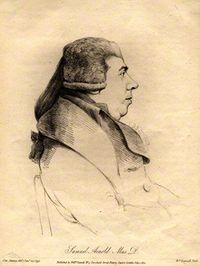Annotation:Oh Say Bonny Lass
X:1 T:Oh! say, simple maid M:3/4 L:1/8 R:Air S:Inkle and Yarico (1787) Z:AK/Fiddler's Companion K:G GD|D2E2G2|G3c B2|A2G2A2|B2G2E2| D2E2G2|G2 dc BA|G3 A BA|G2E2|| D2|c3d c2|B2A2G2|A2A2A2|A2B2d2| g3fe2|ed cB AG|G3 A AG|G2E2||
OH SAY BONNY LASS. AKA - "O bonny lass can you lie in a barrack," "Oh say simple maid have you form'd any notion." English; Air, Waltz (3/4 time). England, Northumberland. G Major. Standard tuning (fiddle). AB. The melody was the vehicle for a song [Roud No: V16444] in the three-act opera Inkle & Yarico [1] [2] (1787), music composed by Samuel Arnold (1740-1802) and a libretto by George Colman the Younger. It was based on a century-old tale widely known in Europe and America, and takes place in Barbados.

Inkle:
Oh, say, simple maid, have you form'd any notion,
Of all the rude dangers in crossing the ocean.
When winds whistle shrilly, ah! would they remind you,
To sigh with regret for the grot left behind you.
Yarico:
Ah, no, I could follow and sail the world over,
Nor think of my grot when I look at my lover,
The winds which blow round us, your arms for my pillow,
Will lull us to sleep while we're rock'd by the billow.
The melody appears under the title "O bonny lass can you lie in a barrack?" in the large 1840 music manuscript collection of multi-instrumentalist John Rook, of Waverton, Cumbria.

